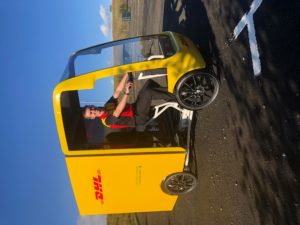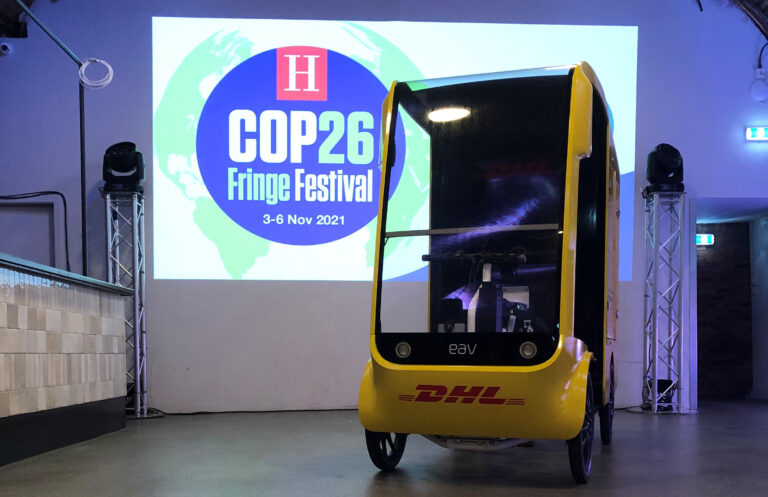DHL has begun a trial of the EAV eCargo bike for its small-item home delivery service.
Operating in Edinburgh, the eCargo bike will deliver items that do not require two-person services but still require special handling. Current plans will see the vehicle make around seven to eight drops a day, carrying around four items at a time. The city was selected as its mix of terrain and size of the city provides the ideal environment to test the bike as part of DHL’s last-mile fleet.
Manufactured by EAV, the new bike has a load capacity of 2m3 and a range of around 40 miles on a single charge. The eCargo bikes have been specifically designed for urban environments, and are zero-emissions, reliable, easy and cheap to operate.

“With ambitious sustainability targets to hit, we’re always looking for new ways to structure the mix of our fleet to reduce overall emissions,” said Natalie Frow, Vice President Operations – Home Delivery at DHL Supply Chain. “The EAV eCargo bike has the potential to transform the way we make many home deliveries, not just in the urban environment but across the country, so we’re looking forward to seeing the results of the trial.”
“It’s pivotal for the logistics industry to adapt to the changing urban environment, by embracing transport that is clean, efficient and unsusceptible to congestion,” commented Leo Bethell, Head of Partnerships at EAV. “DHL has the opportunity to positively disrupt legacy operational models, while hitting its sustainability targets, with our zero emissions, lightweight vehicles. We’re looking forward to demonstrating the value of the EAV 2Cubed in Edinburgh and hopefully developing our partnership with DHL.
Last year DHL Supply Chain launched the UK’s first operational fully-electric 16-tonne truck, serving customers in London’s West End shopping district. This investment in industry leading vehicles reflects DHL’s commitment to ensuring its fleet is best in class and offers the highest possible levels of service to its supply chain customers, as well as reflecting DHL’s own ambitious Go Green agenda and target of net-zero emissions by 2050.







